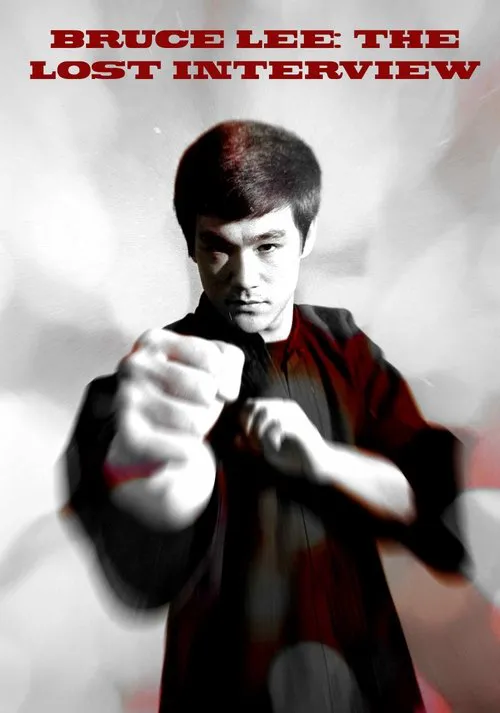Bruce Lee: The Lost Interview

Plot
In the fall of 1971, martial arts sensation Bruce Lee embarked on a promotional tour for his debut film, "The Big Boss," which was a groundbreaking achievement in both the Hong Kong and global film markets. Released earlier that year, Lee's performance in the film marked a turning point in his already illustrious career. To accompany this tour, Lee sat down for a rare interview with Canada's prominent journalist Pierre Berton. The resulting conversation offers a unique glimpse into the thoughts, philosophies, and career aspirations of this enigmatic figure, who had already solidified his status as a master of martial arts both on and off the screen. As we engage with this previously unseen and highly prized interview, we find Lee in his element: passionate, insightful, and open to the possibilities that lay ahead in both his professional and personal life. Berton's affable and inquiring nature immediately puts Lee at ease as he effortlessly delves into the intricacies of his art form, shedding light on the nuances that make his unique style so captivating. During the discussion, Lee discusses his experiences as a martial artist, from his childhood training in Wing Chun – a style that would later serve as the foundation for his renowned Jeet Kune Do technique. The interview captures the fluid motion of his thoughts as he delves into the importance of balance, coordination, and efficiency in his pursuit of perfection. It is evident that Lee is drawn to the holistic benefits of martial arts, emphasizing the value of cultivating both physical and mental agility, as well as spiritual awareness. Lee's passion for martial arts transcends mere physicality, however. He is driven by a deep understanding of the philosophical underpinnings of his craft, drawing inspiration from Eastern wisdom and the ideals of the ancient Tao Te Ching. His emphasis on personal freedom, spontaneity, and natural expression reflects a desire to break free from the confines of traditional martial arts systems, allowing him to explore new avenues of expression and growth. Throughout the interview, Lee is asked about the pressures and expectations that have accompanied his rapid rise to fame. Berton inquires about how he perceives his role in shaping the international image of martial arts, and how Lee navigates the challenges associated with his position as a high-profile representative of his craft. In response, Lee displays remarkable poise, revealing an awareness of both the opportunities and the perils that come with sudden stardom. He candidly shares his perspective on how he intends to balance his creative ambitions with the commercial demands placed upon him, illustrating the tension between artistic expression and the realities of show business. One of the most compelling aspects of this conversation is Lee's perspective on the global appeal of martial arts. With the cultural landscape increasingly intertwined, Berton probes Lee on how he sees his role in shaping a new era of global entertainment. Lee responds with characteristic insight, pointing to the universal appeal of martial arts as a powerful expression of energy, movement, and self-empowerment. He argues that martial arts transcend cultural boundaries, resonating with individuals from diverse backgrounds due to their ability to express the raw, primal energy that lies at the heart of the human experience. The interview also touches upon Lee's creative collaborations, particularly his close working relationship with screenwriter James Clavell, with whom he worked on the screenplay for "The Big Boss." Lee shares his thoughts on the challenges of translating a traditional martial arts story into a cinematic narrative that would appeal to a global audience, and how he navigated the demands of this project to bring his unique vision to life on the big screen. Throughout these conversations, Berton's respectful probing elicits authentic and deeply human responses from Lee, revealing a multifaceted individual who defies categorization. This intimate, candid portrait is, at once, both an exploration of Lee's artistic and personal ambitions and a testament to the profound impact of his legacy. In the interview with Pierre Berton, we are presented with a snapshot of Bruce Lee at a pivotal moment in his career, poised to break free from established conventions and chart new territory in both the martial arts world and the global entertainment industry. It is an enduring reminder of the profound significance that his work has had on the world, leaving behind a lasting impression that continues to inspire generations of martial artists, film enthusiasts, and anyone captivated by the power of his unique philosophy.
Ulasan
Rekomendasi



